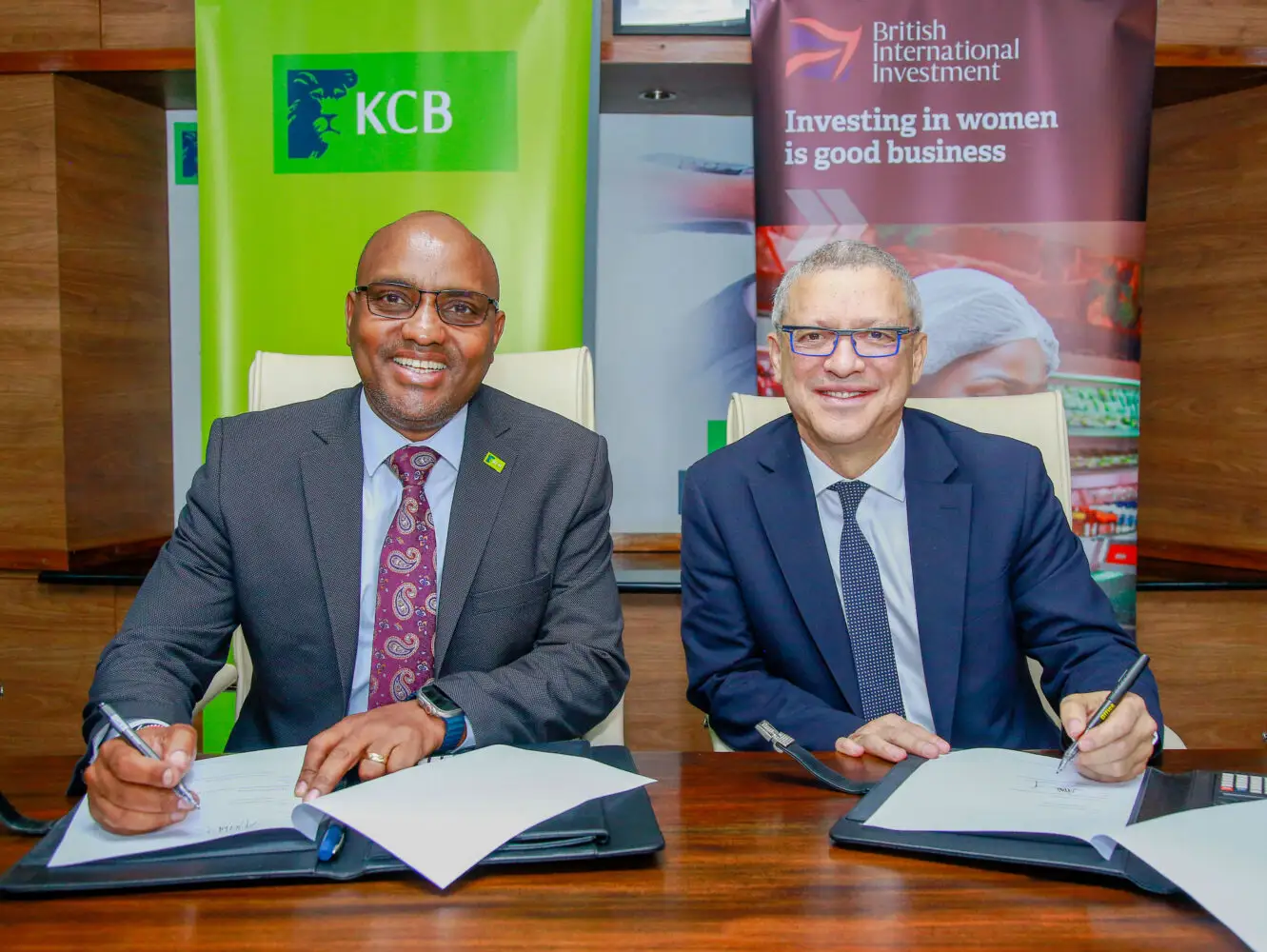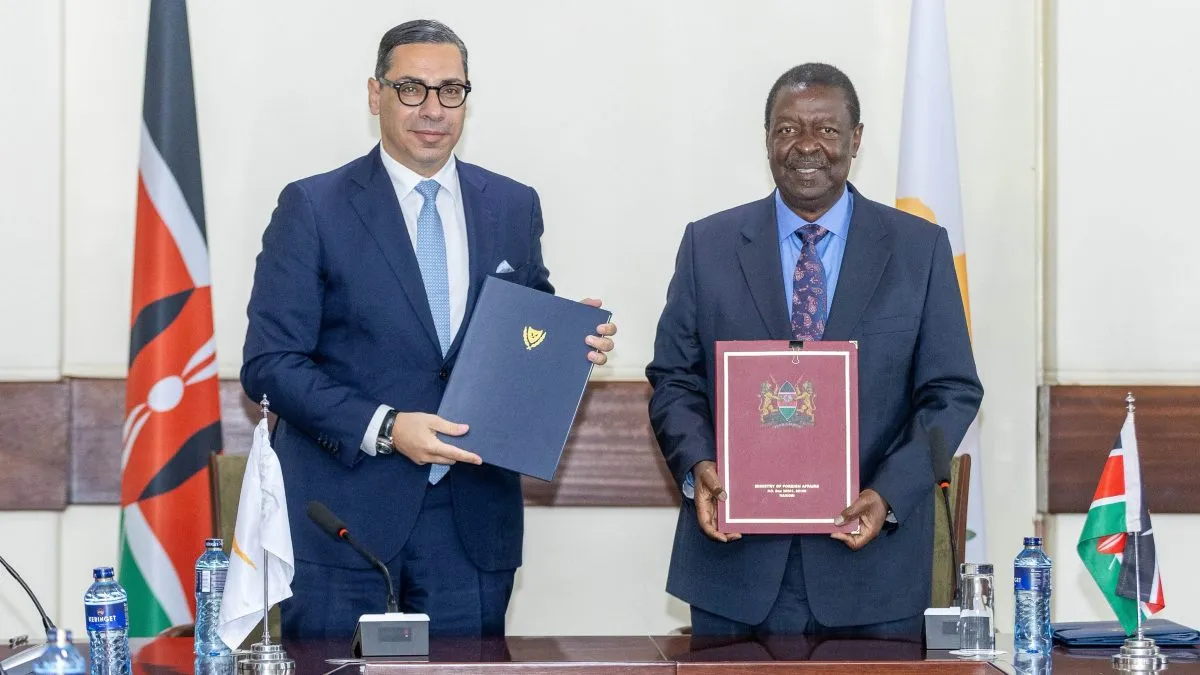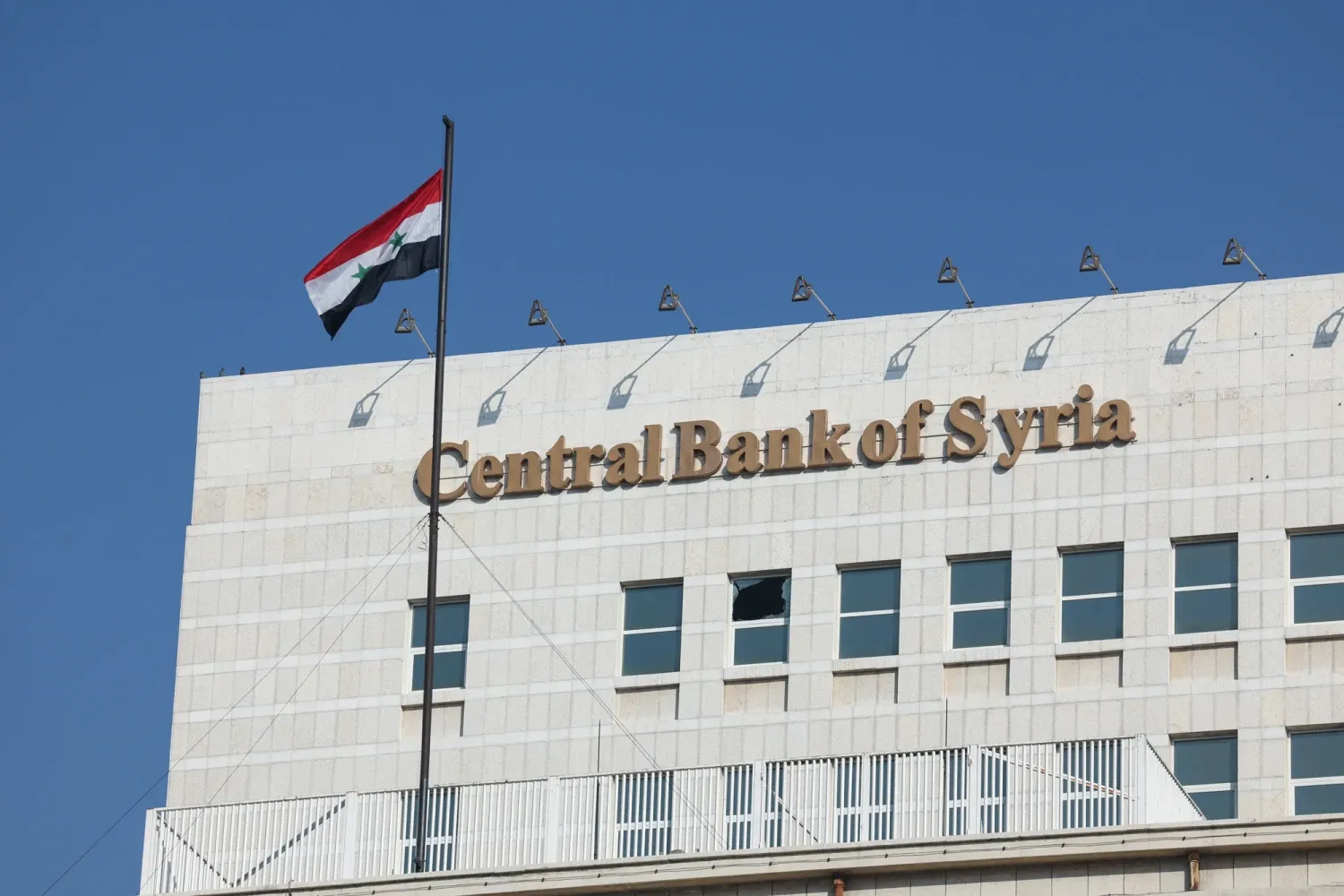British International Investment (BII), the UK’s development finance institution and impact investor, has announced a $100 million Tier 2 capital facility deal with KCB Bank Kenya. This strategic financing initiative is designed to strengthen KCB Bank’s balance sheet, expand its lending capacity, and support vital sectors such as climate-related projects and women-led small and medium-sized enterprises (SMEs).
This landmark deal is set to not only bolster KCB Bank’s total capital position but also to catalyze transformational change in Kenya’s economic landscape by promoting green growth and gender equality. The infusion of Tier 2 capital will enable KCB Bank to expand its loan book significantly—specifically targeting projects that address climate change challenges and empower women entrepreneurs through tailored financial solutions.
Strengthening Financial Foundations Through Tier 2 Capital
Tier 2 capital is an essential component of a bank’s financial stability, often serving as supplementary capital that complements core Tier 1 capital. It plays a critical role in meeting regulatory requirements under global standards such as Basel III and provides a cushion against potential financial shocks. By securing a $100 million Tier 2 capital facility, KCB Bank Kenya is not only enhancing its capacity to absorb losses but also positioning itself to leverage increased lending opportunities in sectors that are pivotal for sustainable development.
For KCB Bank, this capital injection comes at a crucial time. As the bank aims to fortify its total capital position, the additional funds will enable it to grow its loan portfolio, particularly for innovative climate technologies and women-led businesses. This is a strategic move that aligns with the broader global agenda of integrating environmental, social, and governance (ESG) criteria into financial decision-making. With this robust capital base, KCB Bank is better equipped to support local companies engaged in renewable energy, green mobility, and sustainable agricultural value chains—all of which are key to Kenya’s green growth agenda.
Driving Climate Action and Sustainable Development
One of the primary objectives of this financing facility is to spur investments in climate-related projects. Kenya has emerged as a leader in renewable energy in Africa, particularly in solar and geothermal power, and this deal is expected to further accelerate innovation in the sector. By funding local companies that are scaling innovative climate technologies, KCB Bank will help drive the development of renewable energy projects, green mobility solutions, and sustainable practices in agriculture.
This targeted support is especially significant as the world grapples with the challenges posed by climate change. By aligning its financing strategy with the United Nations Sustainable Development Goals (SDGs), KCB Bank is taking proactive steps to address climate action (SDG 13). Investments in renewable energy and green mobility are critical to reducing carbon emissions, fostering environmental resilience, and ultimately contributing to a more sustainable future. In this regard, the facility will support projects that not only mitigate the impacts of climate change but also promote long-term energy security and economic stability in Kenya.
Empowering Women-Led Enterprises Through the FLME Proposition
Another critical element of the $100 million facility is its focus on expanding finance to women-owned and led SMEs. KCB Bank Kenya has committed to supporting gender equality through its Female-Led and Made Enterprises (FLME) proposition. This specialized platform is designed to address the systemic challenges that have historically hindered women’s access to credit, such as discriminatory policies and cultural barriers. By extending tailored financial products and services to women entrepreneurs, the FLME proposition aims to stimulate sustainable economic growth and create meaningful job opportunities.
Women-led SMEs are a vital part of Kenya’s entrepreneurial ecosystem. Despite their significant potential to drive economic growth, many of these enterprises operate in the informal sector and often face obstacles in accessing formal financial services. With the support of this new financing facility, KCB Bank can offer more competitive lending terms and advisory services that cater specifically to the needs of women entrepreneurs. This initiative is not only a win for gender equality but also an investment in the future of Kenya’s economy, where empowering women leads to broader social and economic benefits.
A Strategic Partnership Aligned with Global Initiatives
The financing facility from British International Investment is part of a broader commitment to sustainable and inclusive growth. BII, formerly known as CDC Group, has a long history of investing in projects that drive impact and foster economic resilience in emerging markets. As the UK’s development finance institution, BII plays a pivotal role in channeling long-term investment into regions that require developmental support. This deal with KCB Bank Kenya is a testament to BII’s commitment to strengthening Africa’s banking sector and promoting investments that yield both financial returns and positive social outcomes.
The investment also qualifies for the 2X Challenge—a global initiative aimed at doubling the number of women in leadership positions in businesses and financial institutions. As a founding member of the 2X Challenge, BII is at the forefront of efforts to improve gender diversity across various sectors. The deal reinforces KCB Bank’s commitment to supporting gender diversity not only through its investments but also within its governance structures, including board-level representation and workforce composition.
Voices from the Leaders: Insights on the Impact
Key figures from both organizations have expressed their enthusiasm for the deal, highlighting its potential to drive significant change. Chris Chijiutomi, Managing Director and Head of Africa at BII, emphasized the broader strategic importance of the facility:
“This facility is a testament to BII’s commitment to strengthening Africa’s banking sector through partnerships with financial institutions that are driving inclusive and sustainable business growth. Kenya is an important market for BII. By providing supplementary capital to KCB Bank Kenya, we are helping to scale investments in climate projects and create more opportunities for women-owned and led businesses – critical to Kenya’s economic development trajectory and a national plan for green growth.”
Mrs. Annastacia Kimtai, Managing Director of KCB Bank Kenya, also underscored the transformative potential of the partnership:
“The partnership marks a significant step towards the expansion of our lending to climate-aligned businesses and women-led enterprises while bolstering our capital position. We want to scale the support to stimulate sustainable economic growth.”
Daniel Wilcox, Economic Counsellor & Head of Prosperity and Climate at the British High Commission Nairobi, added an international perspective to the initiative:
“The UK is a long-term partner providing long-term investment in Kenya, as we work together to deliver mutual economic growth for both our nations. Kenya has a vibrant and entrepreneurial business environment, but access to finance continues to be a constraint. We look forward to working closely with KCB to deliver the needed change and impact for businesses.”
These remarks reflect a shared vision among the stakeholders: that strategic investments in climate action and women empowerment are vital for driving sustainable development in Kenya and, by extension, across Africa.
The Role of KCB Bank Kenya in the Regional Financial Ecosystem
KCB Bank Kenya is one of the leading financial institutions in the region, known for its innovative banking solutions and commitment to inclusive growth. Over the years, KCB Bank has established a robust reputation not only in Kenya but also across East Africa. Its proactive approach to addressing the needs of underrepresented sectors, such as climate technology and women-led businesses, has positioned it as a leader in sustainable finance.
Through initiatives like the FLME proposition, KCB Bank has already dedicated significant resources to supporting women-owned and led enterprises. The bank’s commitment is evident in its annual allocation of KShs. 50 billion towards this cause. Since the launch of the FLME initiative in 2022, KCB Bank has extended at least KShs. 150 billion in financing to customers, fostering entrepreneurship and generating meaningful job opportunities. The new $100 million facility will further enhance these efforts by expanding the bank’s lending capacity and enabling it to reach a broader segment of the market.
Catalyzing Change Through Sustainable Finance
The partnership between British International Investment and KCB Bank Kenya is a prime example of how sustainable finance can be leveraged to address critical developmental challenges. By targeting two key areas—climate-related projects and women-led enterprises—the deal addresses both environmental and social imperatives. This dual focus is particularly relevant in today’s global economic environment, where investors and policymakers are increasingly prioritizing ESG factors in their decision-making processes.
Investments in climate-related projects are crucial for countries like Kenya, where renewable energy and green mobility are rapidly emerging as key growth sectors. The country has made significant strides in harnessing its natural resources for sustainable energy production, and continued investment in this area is essential for reducing reliance on fossil fuels, mitigating environmental degradation, and promoting energy security.
Simultaneously, empowering women-led SMEs has a multiplier effect on the economy. Studies have shown that increasing women’s participation in the formal economy can lead to substantial improvements in economic growth, job creation, and social well-being. By ensuring that women entrepreneurs have access to the capital and resources they need, the FLME initiative not only addresses gender disparities but also drives innovation and competitiveness in the broader market.
Addressing Systemic Challenges and Building a Resilient Future
Despite the promising outlook, women-led enterprises in Kenya and across Africa continue to face significant systemic challenges. Discriminatory lending practices, restrictive cultural norms, and limited access to financial services have long hindered the growth of these businesses. The $100 million Tier 2 facility is a targeted response to these challenges, designed to level the playing field and provide women entrepreneurs with the tools they need to succeed.
By mitigating these barriers, the facility is expected to stimulate a virtuous cycle of growth and development. As more women-led enterprises gain access to capital, they can invest in innovation, expand their operations, and create jobs—contributing to a more dynamic and inclusive economy. This, in turn, fosters a more resilient financial system capable of withstanding external shocks and driving long-term sustainable growth.
A Broader Vision for Economic Transformation
The strategic partnership between BII and KCB Bank Kenya is part of a broader vision to transform Kenya’s economic landscape. It is a move that reflects the growing recognition among global financial institutions that inclusive and sustainable finance is not just a moral imperative but a sound economic strategy. By investing in sectors that drive both environmental and social outcomes, the deal sets a benchmark for how financial institutions can play a catalytic role in achieving the UN Sustainable Development Goals—specifically, SDG 5 (Gender Equality), SDG 8 (Decent Work and Economic Growth), and SDG 13 (Climate Action).
Furthermore, the partnership is expected to have ripple effects beyond Kenya. It signals to investors and other financial institutions that innovative financing solutions, which integrate ESG principles, are viable and can deliver significant impact. This could potentially pave the way for similar initiatives across other emerging markets, contributing to a more inclusive and sustainable global financial ecosystem.
The Road Ahead: Challenges and Opportunities
While the potential benefits of the $100 million Tier 2 facility are substantial, its success will depend on effective implementation and ongoing collaboration between all stakeholders. KCB Bank Kenya will need to ensure that the funds are deployed in a manner that maximizes impact, with robust monitoring and evaluation frameworks in place. Additionally, fostering an environment where women-led enterprises can thrive will require continuous engagement with policymakers, industry players, and community leaders to address the entrenched challenges that have historically impeded their growth.
However, the opportunities presented by this financing facility are immense. By enhancing its lending capacity, KCB Bank is not only better positioned to support climate-aligned projects and women-led SMEs but also to drive systemic change in the Kenyan financial sector. This, in turn, will likely inspire confidence among investors and pave the way for further investments in sustainable and inclusive growth initiatives across the region.
Concluding Thoughts: A Catalyst for Lasting Impact
The $100 million Tier 2 capital facility deal between British International Investment and KCB Bank Kenya is a transformative step towards achieving sustainable and inclusive economic growth. By focusing on critical areas such as climate-related projects and women-led enterprises, the partnership is addressing some of the most pressing challenges faced by emerging economies today. It is a bold move that underscores the importance of aligning financial strategies with long-term developmental goals—a strategy that promises to yield both economic returns and substantial social benefits.
As Kenya continues to position itself as a hub for innovation in renewable energy, green mobility, and gender-inclusive finance, initiatives like this will play a pivotal role in shaping the future of the nation’s economy. The collaboration not only strengthens KCB Bank’s balance sheet but also sets a powerful example of how targeted investments can unlock new opportunities, foster entrepreneurial growth, and drive sustainable change.
In a world where access to finance remains a critical constraint for many, this deal represents a beacon of hope—a clear demonstration that when development finance institutions and local banks work together, they can overcome longstanding barriers and build a more inclusive, resilient, and prosperous future for all. The success of this initiative will serve as a model for similar partnerships across Africa and beyond, reaffirming the belief that strategic, impact-driven investments are the key to unlocking transformative economic development.
As the implementation phase unfolds, industry observers, policymakers, and the global investment community will be watching closely. The hope is that this groundbreaking partnership will pave the way for further innovations in sustainable finance, ultimately contributing to a more equitable and resilient global economy. With both British International Investment and KCB Bank Kenya committed to their shared vision of green growth and gender equality, the future looks promising—not only for Kenya but for the broader African continent as well.
Ready to take your career to the next level? Join our dynamic courses: ACCA, HESI A2, ATI TEAS 7 , HESI EXIT , NCLEX – RN and NCLEX – PN, Financial Literacy!🌟 Dive into a world of opportunities and empower yourself for success. Explore more at Serrari Ed and start your exciting journey today! ✨
Photo source: Google
By: Montel Kamau
Serrari Financial Analyst
24th February, 2025
Article, Financial and News Disclaimer
The Value of a Financial Advisor
While this article offers valuable insights, it is essential to recognize that personal finance can be highly complex and unique to each individual. A financial advisor provides professional expertise and personalized guidance to help you make well-informed decisions tailored to your specific circumstances and goals.
Beyond offering knowledge, a financial advisor serves as a trusted partner to help you stay disciplined, avoid common pitfalls, and remain focused on your long-term objectives. Their perspective and experience can complement your own efforts, enhancing your financial well-being and ensuring a more confident approach to managing your finances.
Disclaimer: This article is for informational purposes only and does not constitute financial advice. Readers are encouraged to consult a licensed financial advisor to obtain guidance specific to their financial situation.
Article and News Disclaimer
The information provided on www.serrarigroup.com is for general informational purposes only. While we strive to keep the information up to date and accurate, we make no representations or warranties of any kind, express or implied, about the completeness, accuracy, reliability, suitability, or availability with respect to the website or the information, products, services, or related graphics contained on the website for any purpose. Any reliance you place on such information is therefore strictly at your own risk.
www.serrarigroup.com is not responsible for any errors or omissions, or for the results obtained from the use of this information. All information on the website is provided on an as-is basis, with no guarantee of completeness, accuracy, timeliness, or of the results obtained from the use of this information, and without warranty of any kind, express or implied, including but not limited to warranties of performance, merchantability, and fitness for a particular purpose.
In no event will www.serrarigroup.com be liable to you or anyone else for any decision made or action taken in reliance on the information provided on the website or for any consequential, special, or similar damages, even if advised of the possibility of such damages.
The articles, news, and information presented on www.serrarigroup.com reflect the opinions of the respective authors and contributors and do not necessarily represent the views of the website or its management. Any views or opinions expressed are solely those of the individual authors and do not represent the website's views or opinions as a whole.
The content on www.serrarigroup.com may include links to external websites, which are provided for convenience and informational purposes only. We have no control over the nature, content, and availability of those sites. The inclusion of any links does not necessarily imply a recommendation or endorsement of the views expressed within them.
Every effort is made to keep the website up and running smoothly. However, www.serrarigroup.com takes no responsibility for, and will not be liable for, the website being temporarily unavailable due to technical issues beyond our control.
Please note that laws, regulations, and information can change rapidly, and we advise you to conduct further research and seek professional advice when necessary.
By using www.serrarigroup.com, you agree to this disclaimer and its terms. If you do not agree with this disclaimer, please do not use the website.
www.serrarigroup.com, reserves the right to update, modify, or remove any part of this disclaimer without prior notice. It is your responsibility to review this disclaimer periodically for changes.
Serrari Group 2025





